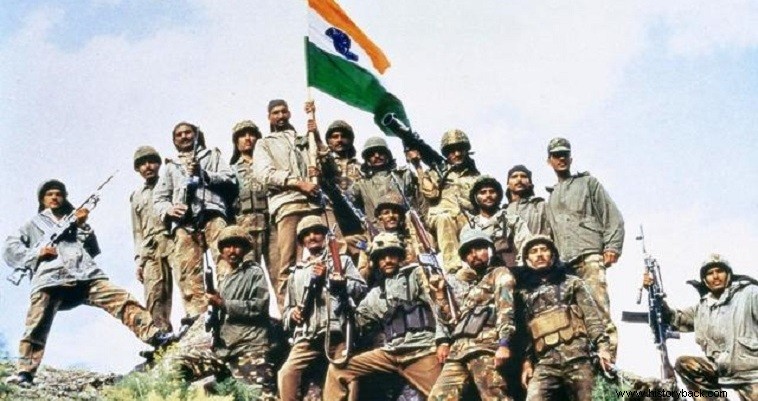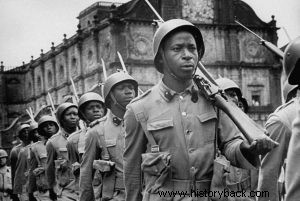
At dawn on December 18, 1961, Indian aircraft crossed the border and bombed an airfield and various other positions. At the same time Indian paratroopers supported by tanks and artillery were crossing that border. Did they invade Pakistan or China? In neither country. The territory they invaded belonged to a European country…
Portugal during the Renaissance was a major colonial power having extended its rule over vast areas around the world. Having opened the sea route to India the Portuguese won after skirmishes won strategic positions in India at Daman, Diu and Goa.
Diplomatic pressure
India, then fragmented into various states and states, later coming under British rule, was unable to react. After independence from the British, the Indians demanded the withdrawal of the Portuguese but the latter refused.
The first war with Pakistan followed. The ongoing tension with Pakistan did not allow the Indians to persist. In the 1950s, however, the issue returned primarily as an internal political issue in India with Indian citizens demanding the unification of the country and the expulsion of the colonialists .
However, the then Prime Minister Nehru maintained a passive attitude and did not push things, hoping that the Portuguese, like the British, would eventually leave on their own. However, this did not happen.
In August 1955 riots broke out in the Portuguese territories with the Indian residents demanding union with India. As a result, 22 Indian protesters were killed and 225 injured.
Nehru again did not move despite popular pressure. In 1961, however, the Indian Prime Minister judged that the conditions were ripe and decided to act militarily. The final decision to attack was taken at the end of November 1961, but preparations had begun much earlier.
The Indian air force and navy started exercises from June 1961. Of course Portugal and the international public got wind of the preparations and reacted but the Indians did not back down even when they came under strong pressure from the USA.
US Secretary of State John Foster Dulles warned Delhi not to use force against Portuguese possessions. Besides, Portugal was a member of NATO and an attack against it would automatically trigger Article 5 of the alliance's charter, which provides for the undertaking of operations in favor of the affected member.
However, Nehru judged, and rightly so, that the risk of US and NATO military intervention against India in the event of an attack on Portuguese possessions was negligible.
Opposing forces
The Portuguese had realized that the Indian attack was imminent and tried to prepare as much as they could. The governor of the Indian possessions, Manuel Antonio Vassallo y Silva, received orders from Lisbon to fight to the last soldier. Silva's forces numbered about 4,200 men. There was also an old barge and three small patrol boats.
Against this force the Indians threw a heavily reinforced division (45,000 men) in infantry and tanks which would be supported from the air by 22 fighters and 20 bombers. From the sea, an aircraft carrier, two cruisers, a destroyer, six frigates and four mine warfare vessels would support the operation.
Attack
On December 17, 1961 the Indians attacked. It was preceded by air raids which destroyed the Portuguese communication centers. At sea the Portuguese barge Afonso de Albuquerque, built in 1934, succumbed after a brave but hopeless fight against three Indian frigates.
Soon the Indians had cleared all three areas without meeting much resistance. And wherever this happened, the resistance was soon suppressed by the absolute superiority of the Indians in means and firepower. Total Indian losses were 22 killed and 54 wounded. The Portuguese had 30 killed, 57 wounded. All their other men were captured.
By December 19th I was all over, although the last Portuguese soldier was captured on December 22nd. The international reaction, as Nehru had predicted. The Soviet Union sided with India. The US condemned the attack but having to deal with the Cuban crisis at the same time, they didn't do more.
Portugal did not accept what had been done until 1974 after the overthrow of the dictatorial regime that ruled the country when a relevant treaty was signed with Portugal renouncing its sovereignty. The Portuguese captives remained in captivity for about six months, under harsh conditions. They were released in May 1962 and returned to their homeland via Pakistan.

Portuguese colonial troops in Goa.
